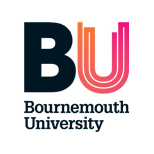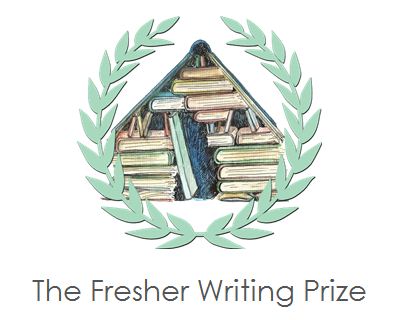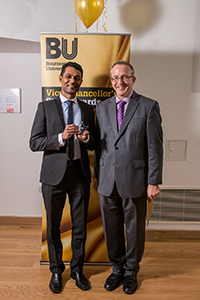LSE’s Sonia Livingstone and Bournemouth University’s Julian McDougall share some of the challenges and outcomes of the recent UNESCO Media and Information Literacy forum and question how we advocate for truly critical media literacy education in the current political environment.
Researchers, educators and a broad range of stakeholders met in Paris at the first UNESCO Media and Information Literacy (MIL) forum on this week (May 27-28) to agree on and adopt a declaration with ambitious and far reaching aims – to create a ‘future proof’ strategy for MIL, towards a more civically responsible networked media landscape in twenty years’ time.
A new report on UK media and information education, authored by the Centre for Excellence in Media Practice in consultation with LSE, along with reports from 28 European Union partners, formed a key strand of the forum as Divina Frau-Meigs and Sonia Livingstone disseminated the outcomes of theCOST / Translit project.
Consensus, fragmentation, and a paradoxical approach in the UK
The conference, over two days, set out its very ambitious vision for an ‘augmented MIL’ to inform education, corporate media policy, public sphere and civic society initiatives and the protection of young people in social media spaces. Alton Grizzle, of UNESCO, observed the dilemmas – a hitherto overly fragmented field, with limited adoption of quickly outdated policies; the challenge of moving beyond protectionism to a converged approach between the internet, education and libraries and the importance of keeping literacy (“reading to lead”) at the heart of the project.
As has often been the case over decades of such discussion, there was broad consensus over intentions but fragmentation over the viability of implementation. In the UK, we have a paradox. We still lead the way in the media education curriculum, with established courses from secondary to higher education, but we argue that the UK is now trailing our European neighbours in policy mandate, political support, teacher training and funding for the broader project of providing media and information literacy as an entitlement for all citizens. Media education in the UK is currently vulnerable as policy makers favour an instrumental approach to coding that moves away from critical (and arguably political) dimensions of media literacy. In other countries, there is sometimes stronger political support but generally weaker curricular development.
Agreeing on recommendations and finding solutions
At the forum, there was no doubting the passion and force of argument. The Declaration, soon to be released, and on which Julian worked on late into the evening with a team led by Divina Frau-Meigs, calls for ten recommendations, including:
To foster MIL to address issues of access, privacy, safety and security and the ethical use of information, media and technology, informed by human rights standards, and to recognize the role of MIL in relation to cultural diversity, intercultural dialogue and the protection of citizens in countries with fragile social capital and weaker democratic political culture.
… and
To encourage media and ICT companies to integrate MIL priorities in their strategic planning and governance with incentives, to include criteria in CEO pay such as collection of specific indicators, dialogue with stakeholders (customers, employees, academics, the financial community, young citizens and civil society) and to work within clear and transparent accountability frameworks.
It calls on educators, researchers, corporations, librarians and civil society to advocate media and information literacy as a response to the problems of civic engagement, as well as an instrumental means of fuelling the ‘digital economy’. Whether these objectives are themselves in tension was the subject of much debate. Among those who work with private sector corporate funders, or undergraduates who go on to work with multinational film producers or teachers who seek foster youth civic engagement, critical literacy and voice in the public sphere, these are real dilemmas in a discursive-political minefield.
And then, how to achieve these aims – which go as far as to nurture a culture of peace and respect across the globe – is, as always, less clear. The clearest fault lines are between delivery as a stand-alone mandatory school subject (favoured by Matteo Zacchetti from the EC) or a cross-curricular or informal / lifelong context implemented through multi-faceted dialogue (favoured by UNESCO). Whether the campaign for global media literacy is explicitly counter-hegemonic or more neutrally egalitarian was also contested. The perennial problem of talking on behalf of but not directly with young citizens pervaded.
However, there is global consensus among experts that media and communication technologies are more complex every day and that it is increasingly vital that young people can navigate this complexity to participate fully and fairly as digital citizens now and the future. As we stated at the forum, in agreement with Divina Frau-Meigs, coding is not enough. Decoding today’s media – to recognise misleading and exploitative content, to appreciate what is available and to grasp the emerging opportunities – doesn’t come naturally. It needs to be facilitated, in mainstream, mandatory education. It must also be aided byuser-centred design else the task of decoding illegible interfaces will elude even the most media literate users.
The challenge is this: In contexts where a neoconservative hegemony undermines critical thinking, media literacy is marginalized and education is increasingly commodified by and for corporations, how can we lobby for MIL? Should one be more or less explicit about the political, counter-hegemonic objectives that are underwritten in the UNESCO declaration or instead stress the instrumental elements of MIL that serve the information economy discourse? Discussion at the forum positioned the reference to left and right as unhelpful and outmoded, but in the week of the European election results, might we be in grave danger of allowing a creeping anti-egalitarianism to masquerade as democratic ‘neutrality’ or to foster more of what Paolo Celot (leader of the European Association for Viewers’ Interests and involved in the Emedus project) referred to as ‘the globalization of ignorance’?
This blog post was taken with permission from the LSE blog site and gives the views of the authors, and does not represent the position of the LSE Media Policy Project blog, nor of the London School of Economics.
 As the new faculty structure takes shape across BU, the discipline of Law will be integrated into the Faculty of Media & Communication, shifting its home from what used to be the Business School.
As the new faculty structure takes shape across BU, the discipline of Law will be integrated into the Faculty of Media & Communication, shifting its home from what used to be the Business School. Bournemouth University
Bournemouth University Creative writers are invited to enter the Fresher Writing Prize 2015 – The annual competition for new writers.
Creative writers are invited to enter the Fresher Writing Prize 2015 – The annual competition for new writers. Congratulations to Dr Chindu Sreedharan from The Media School on winning the Academic Staff – Unsung Hero Award at the Vice-Chancellor Staff Awards 2014.
Congratulations to Dr Chindu Sreedharan from The Media School on winning the Academic Staff – Unsung Hero Award at the Vice-Chancellor Staff Awards 2014.